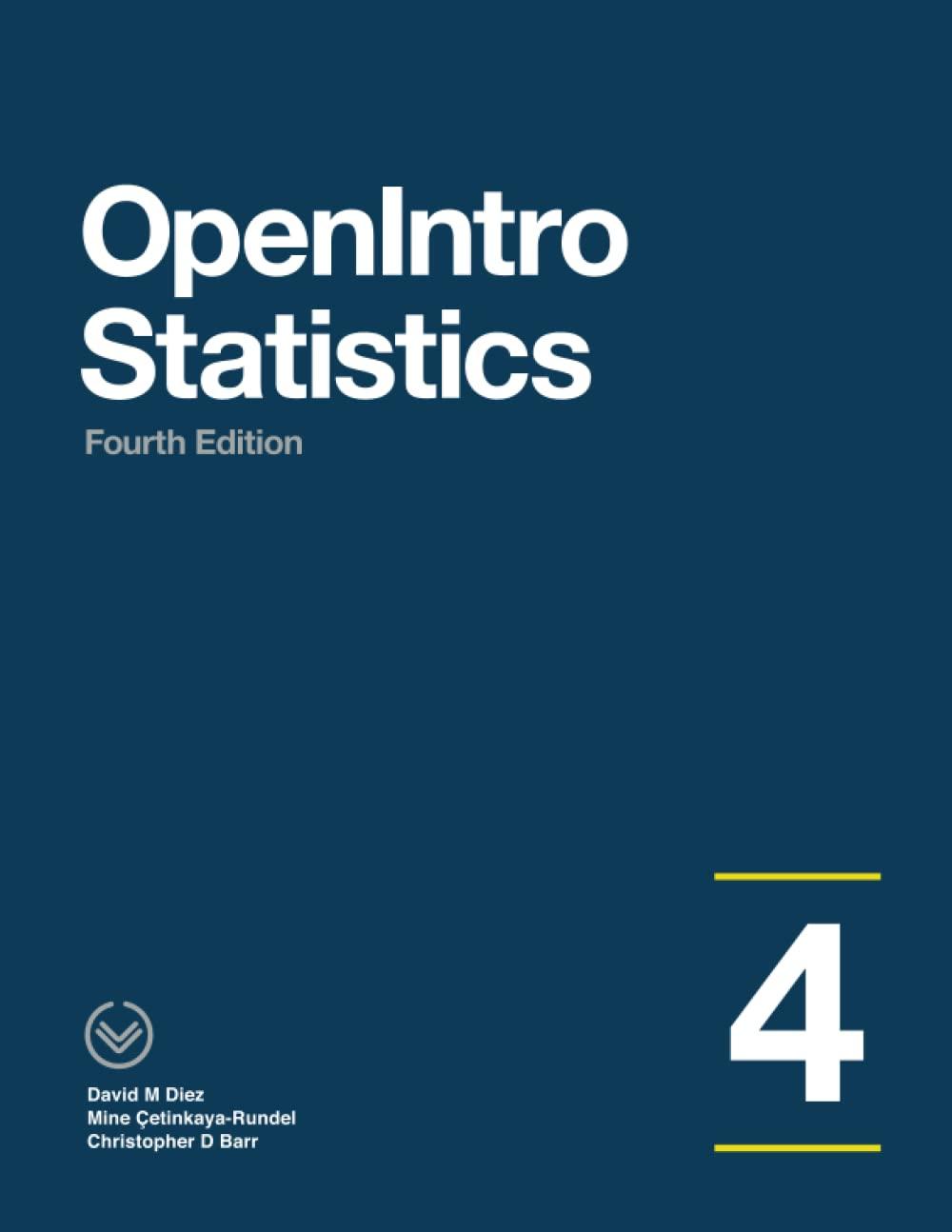Question
A survey on 1,500 high school seniors who took the SAT and who completed an optional web survey shows that 55% of high school seniors
A survey on 1,500 high school seniors who took the SAT and who completed an optional web survey shows that 55% of high school seniors are fairly certain that they will participate in a study abroad program in college. Does this survey provide convincing evidence that the majority (more than 50%) of all high school seniors who take the SAT are fairly certain they will participate in a study abroad program in college?
Use a 0.05 level of significance. Hint: write the percentages as decimals.
1. What is the population of interest?
Group of answer choices
The 1500 seniors who took the SAT
All people in the united states
All high school seniors who took the SAT
All SAT Exams
2. What is the sample?
Group of answer choices
All high school seniors who took the SAT
All people in the United States
All SAT Exams
The 1500 seniors who took the SAT
3. What variable is being studied here?
Group of answer choices
The number of students who took the SAT
The optional web survey
How many study abroad opportunities are available
Whether or not the seniors who take the SAT will participate in a study abroad program in college
4. Describe the parameter of interest in words.
5. What is the value of the statistic for this study?
a) p^=0.55
b) =0.55
c) p^=0.5
d) =0.5
Group of answer choices
c
a
b
d
6. Set up the hypotheses for this study.
a)
Ho:=0.5
Ha:0.5
b)
Ho:=0.5
Ha:<0.5
c)
Ho:p^=0.55
Ha:p^>0.55
d)
Ho:=0.5
Ha:>0.5
Group of answer choices
b
a
c
d
7. Given the p-value is 0.01, would you reject or fail to reject the null hypothesis? Why?
8. Are validity conditions satisfied for using theory-based inference approach? Why or why not?
9. Compute the standardized statistic for the hypotheses in problem 6 using the theory-based approach. (Hint: I recommend you calculate the SD under the null first)
10. Based on your standardized statistic you got in 9, what decision do you make? Hint: (Reject/Fail to Reject) the (null/alternative) hypothesis.
Does this agree with your decision you made based on the p value?
11. What does this conclusion mean in context of the problem?
12. Can we generalize the results of the study? If so, to whom can we generalize the results to? If not, explain why not.
Step by Step Solution
There are 3 Steps involved in it
Step: 1

Get Instant Access to Expert-Tailored Solutions
See step-by-step solutions with expert insights and AI powered tools for academic success
Step: 2

Step: 3

Ace Your Homework with AI
Get the answers you need in no time with our AI-driven, step-by-step assistance
Get Started


